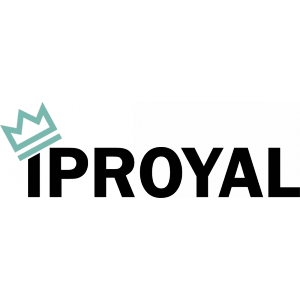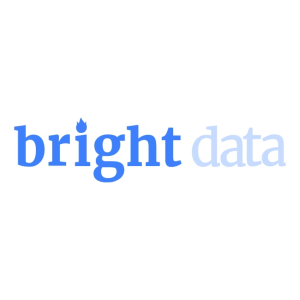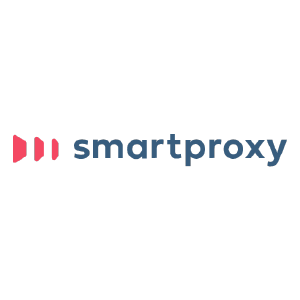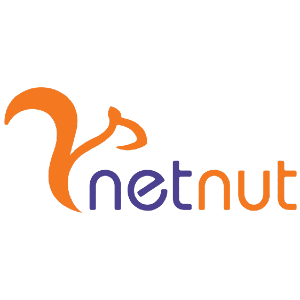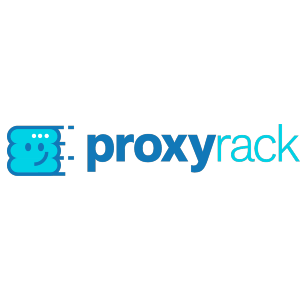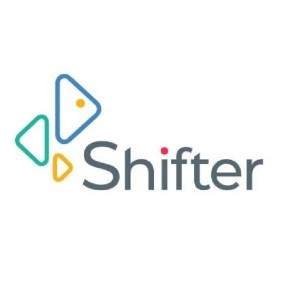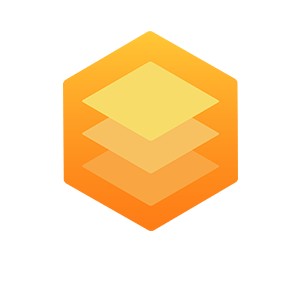In web development, Node.js has emerged as a powerful tool, revolutionizing how we build server-side applications using JavaScript. But as our applications grow in complexity and face ever-evolving challenges, we seek additional tools and techniques to optimize performance and enhance security.
This is where proxies come into play! Proxies offer a range of benefits that can greatly enhance the performance, security, and flexibility of Node.js applications. But to reap all these benefits, you must choose the right proxies.
For that reason, we researched for you and carefully selected the best proxy providers for Node.js. We’ve considered various factors, including the proxy sourcing methods, geo-targeting options, location coverage, quality of customer support, pricing, and useful features such as flexible rotation options and SOCKS5 support.
Before we delve into each of them, here’s a quick overview of our picks, followed by a brief reminder of what Node.js is and why you may need to use proxies with it.
Best Proxy Providers for Node.js – Quick Summary
1. IPRoyal – Overall the best proxy provider for Node.js
2. Bright Data – Proxies with excellent geo-targeting options
3. Smart proxy – Multiple proxy types at affordable prices
4. Oxylabs – Massive proxy pool with a 3-day refund policy
5. MarsProxies – Fast, private proxies with a daily plan available
6. NetNut – Diverse proxy catalog with a 7-day free trial
7. Proxyrack – Multiple types of residential and datacenter proxies
8. Shifter – Residential and ISP proxies with a 3-day money-back guarantee
9. PacketStream – Cheap residential proxies
10. GeoSurf – Excellent location coverage
What Is Node.js?
Node.js is a platform that lets developers run JavaScript code on servers instead of just web browsers. It allows them to build powerful and efficient server-side applications using JavaScript, the same language used for web development.
Node.js is known for its ability to handle multiple tasks simultaneously, making it great for applications requiring many concurrent connections or real-time interactions. It’s popular among developers because it’s fast, scalable, and comes with a vast ecosystem of reusable code packages.
In a nutshell, Node.js enables developers to create server applications using JavaScript, providing them with a unified language for both client-side and server-side development.
Why Do You Need Proxies With Node.js?
A reliable proxy service can help you use Node.js efficiently. However, the need for a proxy server is determined by how you plan to use the software.
If you want to use it for web scraping, it’ll help you scrape data efficiently and anonymously. That’s because most websites don’t support web scraping, so web admins employ strict anti-scraping measures to detect and block web scrapers or crawlers.
They do this by checking the number of requests from the same IP address. If that number exceeds the set threshold, they instantly block the associated IP address. With proxies, your requests will look like they come from different IP addresses, thus avoiding detections and blocks.
You may also need to use proxy servers when designing automated programs for popular websites with strict anti-spam regulations. By making your traffic look normal, they will help you avoid robust anti-spam mechanisms.
Other benefits of using proxies with Node.js include load balancing, which distributes incoming requests across multiple backend servers. This ensures efficient resource utilization, prevents bottlenecks, and improves overall performance and scalability.
Proxies can also implement caching mechanisms, storing frequently accessed data or responses, which reduces the load on backend servers and significantly improves response times.
In addition, proxy servers act as a protective layer, safeguarding Node.js applications from various security threats. They can inspect incoming requests, filter out malicious traffic, and enforce security policies like rate limiting, access control, and content filtering.
By providing an additional barrier between clients and servers, they prevent direct access to the application and mitigate the risk of attacks.
Overall, there are many benefits and reasons to use proxies with Node.js, so having one close by when using this tool is always a good idea!
Full Providers Review
Not all proxy services are suitable for Node.js, so it’s important to choose the right one. Here are some of the best choices currently available on the market.
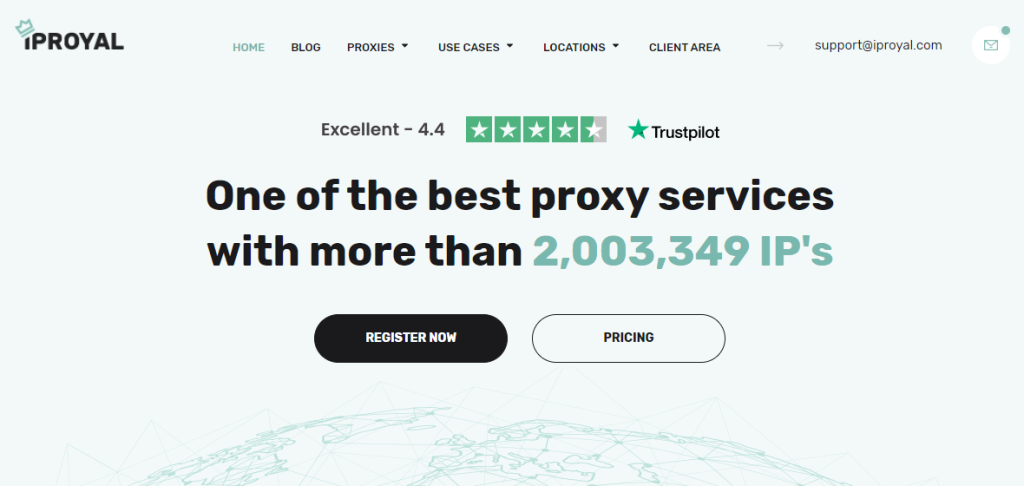
- Pricing: Residential proxy servers start at $7 per GB with great bulk discounts, while datacenter proxies start at $9 for 5 IPs. The pricing for the static residential proxy service starts at $1.80 per IP and for the mobile proxy service at $90 a month. Sneaker proxies are available at $1 per proxy.
We start our list with one of the most reliable and affordable proxy providers – IPRoyal. This company is proud of its ethically-sourced residential IP addresses obtained from genuine residential users and ISPs from locations all over the world. With over 8 million proxies, 195 locations available, and country, state, and city-level targeting, it’s ideal for Node.js users.
Besides high-quality residential proxies with flexible rotation options, sticky sessions, dual authentication, and never-expiring traffic, the provider also has static residential (ISP), mobile, datacenter, and sneaker proxy servers. They all have 99.99% uptime, exceptional speeds, and HTTP(S) and SOCKS5 support, guaranteeing fast, reliable, and secure connections.
Other useful features worth mentioning include unlimited bandwidth and threads, API access, and 24/7 customer support available via live chat, email, and Discord. The pricing is one of the most affordable on the market, with a pay-as-you-go option, great bulk discounts, and a 24-hour money-back guarantee.
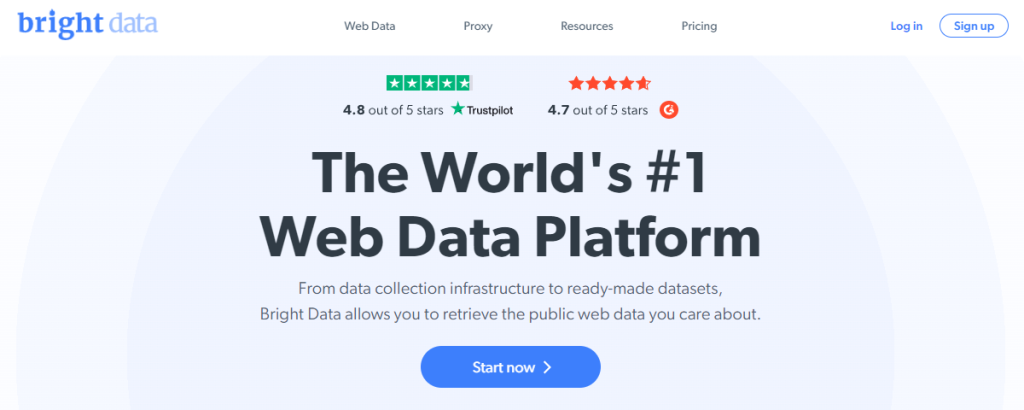
- Pricing: The residential proxy service starts at $15 per GB, and mobile proxies at $24 per GB. Datacenter proxies start at $0.110 per GB plus $0.80 per IP, while ISP proxy servers start at $15 per GB plus $0.50 per IP.
Bright Data is a serious contender with a powerful network of over 72 million IP addresses from over 195 locations around the world. Besides residential proxies as their main product, the company also offers ISP, mobile, and datacenter proxy servers.
Bright Data’s residential proxies allow you to target any country, city, zip code, ASN, and carrier, which is great. They come with unlimited threads, 99% uptime, and sticky and rotating sessions, indicating high reliability and flexibility.
The ISP, mobile, and datacenter proxies have high speeds, uptime, and success rates. The datacenter proxies, in particular, come with unlimited threads, bandwidth, and number of targets.
As a popular web data platform, the company offers multiple scraping solutions like Web Scraper IDE and SERP API. However, the prices are rather high, so it may not be the best choice for those on a budget. On the bright side, there’s a pay-as-you-go option, a 7-day free trial for companies, and a 3-day money-back guarantee for private users.
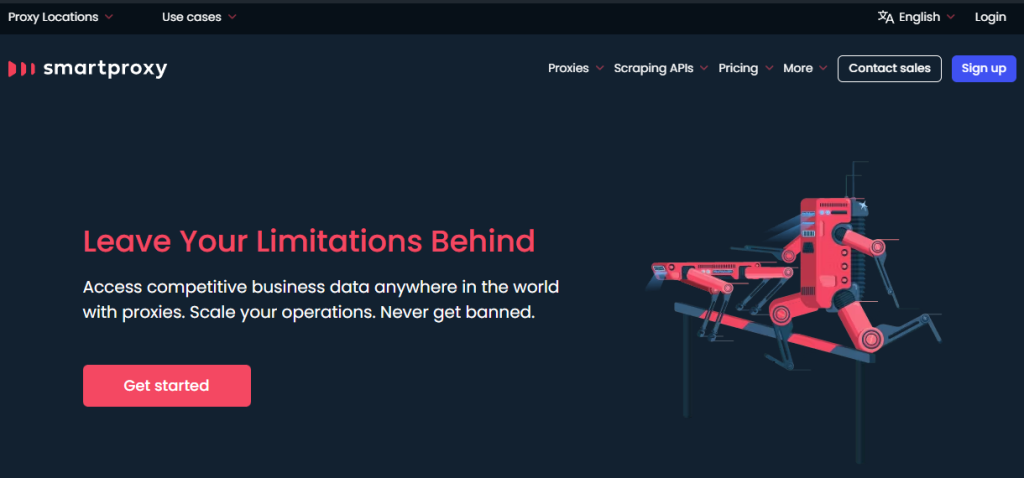
- Pricing: Residential proxies start at $8.5 per GB, and mobile proxy servers at $50 for 2 GB. The static residential proxy service starts at $28 for 2 GB a month. Dedicated datacenter proxies start at $7.5 for 3 IPs a month, while shared datacenter proxy servers start at $30 for 50 GB a month or $10 for 100 IPs a month.
With a diverse proxy catalog and extensive proxy network, Smartproxy is another option to consider for your Node.js needs. The company has over 50 million IPs in over 195 countries worldwide, allowing you to choose IPs based on country, city, state, or mobile carrier and scrape localized data without any hurdles.
Besides the excellent geo-targeting options, Smartproxy’s residential proxy servers come with unlimited connections and threads, sticky sessions, HTTP(S) and SOCKS5 support, and high success rates. They are sourced ethically and provide full anonymity.
The company’s ISP proxies come with unlimited bandwidth, while the shared datacenter proxies give you a chance to pay for the number of IPs or the amount of bandwidth. There are also dedicated datacenter proxies with top speeds, 99.99% uptime, and unlimited bandwidth.
There’s 24/7 customer support available via live chat, Telegram, email, and Skype. The pricing is affordable, and companies can request a trial.
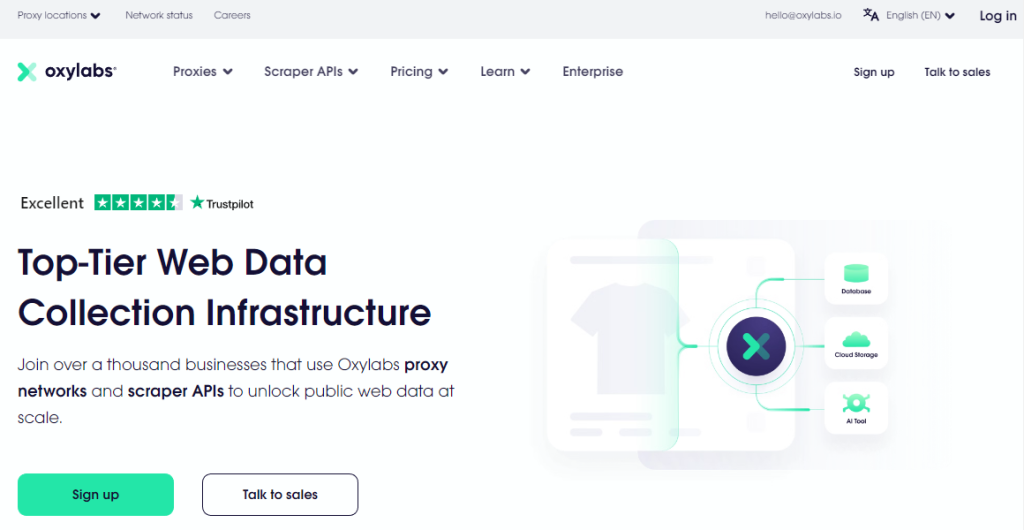
- Pricing: Residential proxy servers start at $15 per GB, while ISP rotating proxy servers at $340 for 20 GB a month. Dedicated datacenter proxies start at $180 for 100 US IPs or 60 global IPs, while shared datacenter IPs start at $50 for 77 GB a month. Mobile proxies start at $30 per GB a month, while the static residential proxy service starts at $297 per month for 100 US proxies and $521 per month for 100 proxies in another country.
Oxylabs is the number one provider based on the proxy network size. The company has over 102 million IP addresses in over 195 locations worldwide, stats that are still out of reach for other providers. With country, state, city, and zip code-level targeting, you can choose the IPs you need to look like a local internet user from anywhere.
The proxy catalog includes residential, mobile, shared datacenter, dedicated datacenter, rotating ISP, and static residential proxies. The residential proxy service offers HTTP(S) and SOCKS5 support, high success rates, and ethically-sourced IPs for optimal security and performance.
The datacenter proxies come with unlimited bandwidth, the residential with unlimited threads, and the ISP proxies with an unlimited number of targets. Other useful features include 99.99% uptime, flexible rotation options, and sticky sessions.
Customer support is available through live chat and email. The pricing, however, is on the higher end, but there’s a 3-day refund policy on all products except for pay-as-you-go purchases.
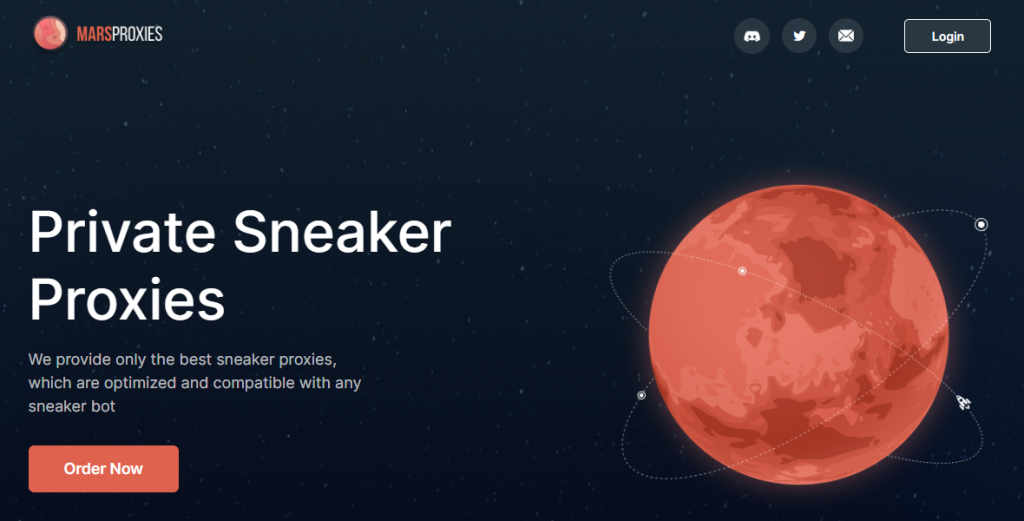
- Pricing: Residential proxies start at €3 per GB, while ISP proxy servers at €2 per IP. The datacenter proxy service starts at €0.80 per proxy a day and €1.40 per proxy a month.
MarsProxies is a legitimate proxy provider with an average-sized proxy pool of over one million IPs in 200 locations worldwide. It offers residential, ISP, and datacenter proxy servers at very competitive prices. Most importantly, all IPs are private and clean, increasing your chances of avoiding bans.
The company’s residential proxy servers are ethically sourced and come with sticky sessions, dual authentication, and traffic that never expires. On the other hand, the ISP and datacenter proxy servers are ultra-fast and come with unlimited bandwidth and threads.
All MarsProxies products have 99.99% uptime for an uninterrupted connection and SOCKS5 support for optimal security and flexibility.
You can contact their customer support agents via email, Discord, and Twitter, so the lack of live chat or phone support can be considered a drawback. On the other hand, the pricing is fantastic, and there’s a daily plan available for their datacenter proxies.
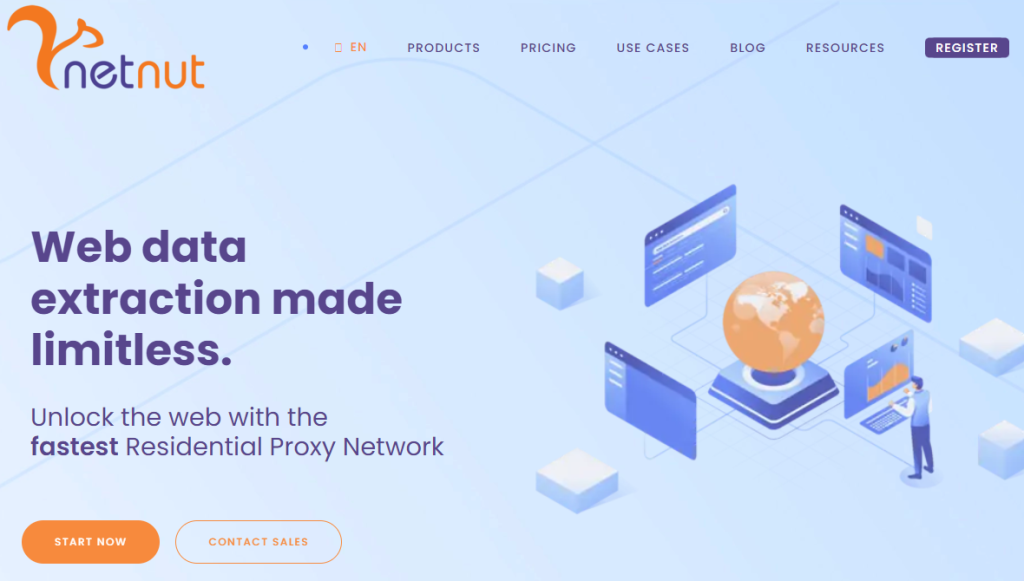
- Pricing: The residential proxy service starts at $300 for 20 GB monthly, while the ISP proxy service at $350 for 20 GB monthly. Datacenter proxy servers start at $100 for 100 GB monthly, and mobile proxy servers at $950 for 50 GB monthly.
NetNut offers multiple proxy types, including residential, datacenter, mobile, and ISP proxy servers. Its proxy pool comprises over 52 million IPs from over 150 locations, which is more than enough for most Node.js needs. The provider doesn’t mention geo-targeting, but we’ve contacted them and found they offer country, city, and state-level targeting.
The company’s residential proxies support HTTP(S) protocols and rotating and sticky sessions. They boast high uptime of 99% and unlimited threads. The ISP and datacenter proxy servers are fast and reliable but are charged per GB, so you won’t find unlimited bandwidth here.
Customer support is responsive and available via live chat, email, WhatsApp, Discord, Telegram, and Skype. In fact, we’ve contacted them via live chat and got a response within minutes. The prices are pretty high, but the 7-day free trial makes up for that.
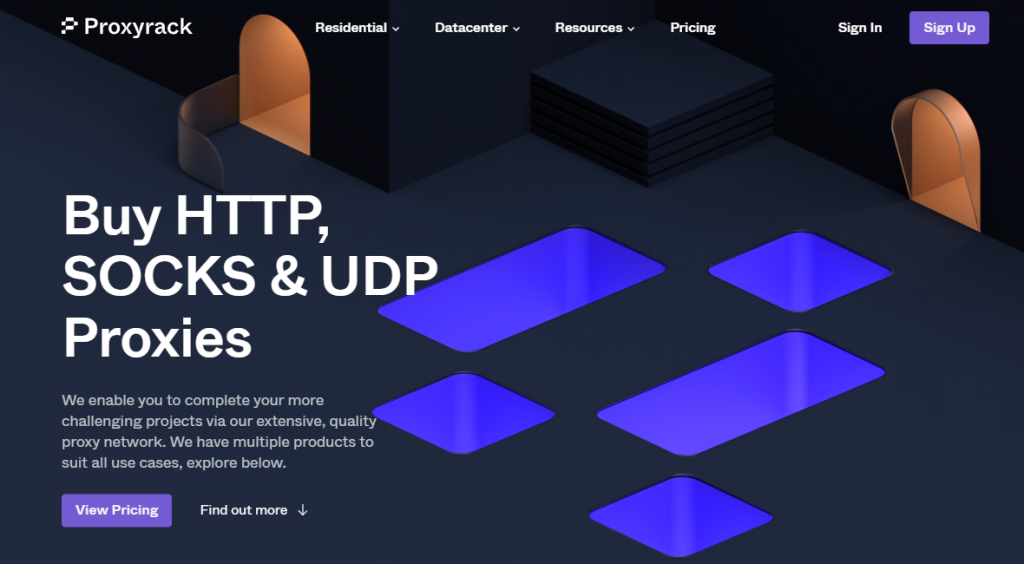
- Pricing: Premium residential proxies start at $49.95 for 10 GB per month, while unmetered residential proxy servers start at $65.95 per month for 5 ports. The USA rotating datacenter proxy service starts at $70 per month for 100 threads, while the USA static datacenter proxy service starts at $50 per month for 100 threads. Global rotating datacenter proxies start at $65 per month for 100 threads.
This well-established proxy provider offers residential and datacenter proxy servers at reasonable prices. Its proxy network consists of over 5 million IPs from over 140 locations around the world, with the residential proxies supporting country, city, state, and ISP-level targeting.
Other useful features of the residential proxy servers from this provider include HTTP(S) and SOCKS4/5 support, dual authentication, sticky and rotating sessions, and custom rotation time. You can choose between premium and private unmetered residential proxies, the latter being charged by the number of ports.
The datacenter proxy service is available in three versions – USA rotating, global rotating, and static USA proxies. They come with unlimited bandwidth, dual authentication, and city-targeting in the US.
Customer support is available through live chat and email, though the live chat takes about a day to respond. Proxyrack’s pricing is affordable, with a pay-as-you-go plan and a 7-day paid trial that allows you to test all of their products at only $13.95.
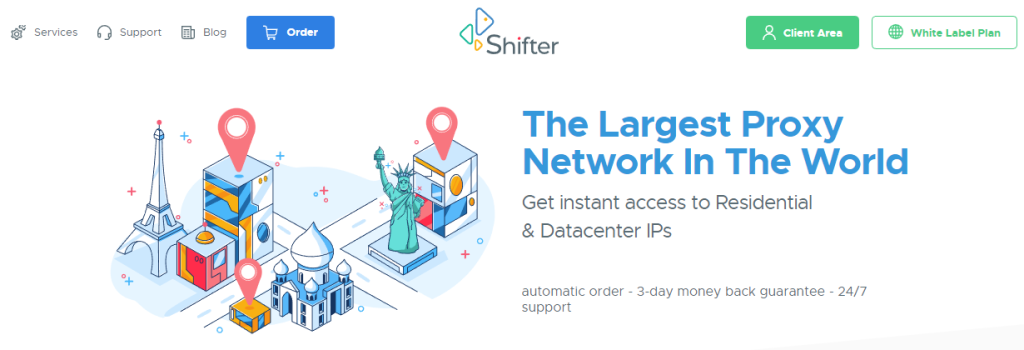
- Pricing: Starting from $199.98 for 5 special rotating proxies and $99.98 for 5 basic rotating proxies. The static residential proxy service starts at $74.99 for 25 IPs.
Shifter is a reputable proxy provider offering residential proxies sold as basic and special rotating proxies, as well as static residential proxies. The company has over 50 million IPs in over 195 locations, indicating an excellent proxy pool size and worldwide coverage.
If you need precise geo-targeting options, you’ll only find them under the special rotating proxy service. Hence the higher prices.
Shifter’s residential proxies come with custom rotation time, HTTP(S) and SOCKS5 support, and 99.99% uptime, so they are highly secure and flexible. The static residential proxies provide unlimited bandwidth, sticky sessions, and an unlimited number of targets. They boast top speeds and high uptime for a fast and reliable connection.
Customer support is available 24/7 through live chat and email. Shifter proxies have above-average prices, but each service comes with a 3-day money-back guarantee which gives peace of mind.
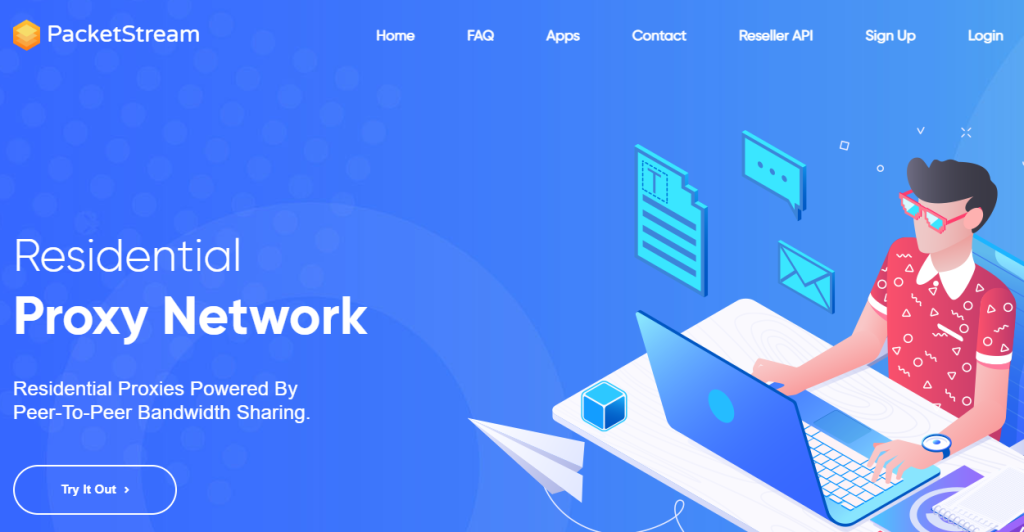
- Pricing: Starting from $1 per GB.
PacketStream offers exclusive residential proxy servers, so it’s a good option to avoid detections and bans when using them with Node.js. It has over 7 million IPs from over 100 locations around the world, which is great, but it doesn’t mention anything about geo-targeting. This is why we assume it only allows country-level targeting.
On the bright side, its residential proxies are sourced ethically and transparently, so they are extremely trustworthy. They support HTTP(S) connections, sticky sessions, and username/password authentication. The lack of SOCKS support and IP whitelisting is an obvious drawback, as are the slow speeds.
However, this is compensated with extremely low prices, making PacketStream an excellent option for anyone on a budget. You can only contact the support team via email, and there’s no free trial or money-back guarantee.
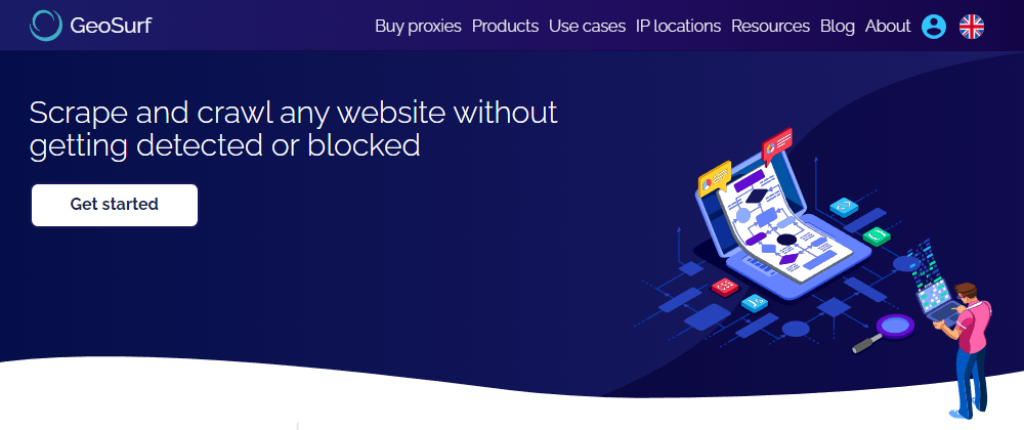
- Pricing: The residential and static residential proxy services start at $300 per month for 25 GB with $12 per additional GB.
GeoSurf is a legitimate residential proxy provider targeting data scraping professionals. Its proxy catalog includes residential and static residential proxy servers for data scraping and web crawling. The company has over 3.7 million IPs from over 2,000 locations, including cities.
With GeoSurf’s residential proxies, you can choose an IP from any country, city, or state you need. These proxies have automatic IP rotation, dual authentication, and unlimited connections and threads. They have decent speeds and 99.99% uptime, ensuring a fast and seamless connection.
Even though the provider offers static residential proxies as well, it doesn’t provide enough information about them. It only says they are fast and stable, but nothing can back it up.
Customer support is available through Telegram, WhatsApp, Skype, and email. The pricing is above average, and the plans have no money-back guarantee or free trial.
What Types of Proxies Work With Node.js?
You can use residential, datacenter, or ISP proxy servers with your Node.js, as long as they come from a reliable provider. Even though they are all suitable for this software, residential proxies are considered the best option.
That’s because they are sourced from genuine residential users and ISPs, making them almost impossible to detect. Datacenter and ISP proxies, on the other hand, offer higher speeds as they come from data centers or cloud services. This, in turn, makes them easier to detect than residential proxies.
Overall, if you need high trustworthiness and security when using Node.js, we recommend using residential proxies. If your online tasks require top speeds and don’t require high security, you can go with datacenter or ISP proxy servers. So it really depends on your needs.
Boost Your Networking Apps With Node.js and Proxies
Networking applications demand high performance, scalability, and security to handle the challenges of modern connectivity. By harnessing the combined strength of Node.js and proxies, you can supercharge your networking apps and unlock their full potential.
Node.js empowers developers with a robust runtime environment for server-side JavaScript development. Its non-blocking I/O model and event-driven architecture enable efficient handling of concurrent connections, making it an excellent choice for networking applications that require real-time communication and high scalability.
Integrating proxies into your Node.js networking apps provides an extra layer of optimization and security. Proxies allow you to balance the load across multiple servers, ensuring efficient resource utilization and enhanced scalability. They also enable caching mechanisms, reducing response times and alleviating the workload on backend servers.
They also act as guardians, fortifying your networking apps against security threats.
By leveraging the power of Node.js and proxies, you can elevate the performance, scalability, and security of your networking applications. Whether you’re building real-time chat platforms, video conferencing systems, or data-intensive APIs, embracing Node.js and proxies will give your networking apps the boost they need to thrive in the interconnected world.
Conclusion
We have highlighted several top proxy providers that excel in supporting Node.js environments. Selecting the best proxy provider for your Node.js application depends on various factors, such as performance requirements, budget, geographic coverage, and security needs.
It’s crucial to evaluate each provider’s offerings and consider your specific use case before making a decision.
FAQs
What are Node.js proxies?
Node.js proxies are regular proxy servers that work with the Node.js software. They function as a middleman between your device and the online service you want to access, keeping your IP concealed.
Will I get the same results using a free proxy?
No, you most definitely won’t. Free proxies are slow, unreliable, and unsafe and can compromise your data. They are shared between numerous users simultaneously, so they are not a good option for Node.js.
